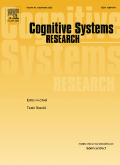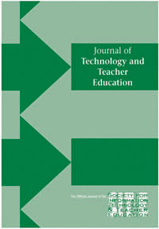Publications - Journal article
Publication Types:
Sort by year:
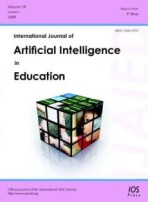
Research-based design of pedagogical agent roles: A review, progress, and recommendations
Journal articleVirtual agents/avatars
Kim, Y. & Baylor, A. L. (2015). Research-based design of pedagogical agent roles: A review, progress, and recommendations International Journal of Artificial Intelligence in Education. DOI 10.1007/s40593-015-0055-y.
Publication year: 2015
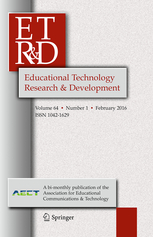
The design of motivational agents and avatars
Journal articleTechnology design / integrationVirtual agents/avatars
Baylor, A. L. (2011). The design of motivational agents and avatars. Educational Technology Research & Development, 59 (2), 291-300.
Publication year: 2011

The influence of computer-based model’s race and gender on female students’ attitudes and beliefs towards engineering
Engineering educationJournal articleVirtual agents/avatars
Rosenberg-Kima, R., Plant, E. A., Doerr, C. & Baylor A. L. (2010). The influence of computer-based model’s race and gender on female students’ attitudes and beliefs towards engineering. Journal of Engineering Education, 99 , 35-44.
Publication year: 2010
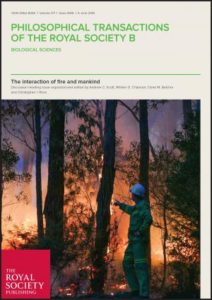
Promoting motivation with virtual agents and avatars: role of visual presence and appearance
Journal articleProceedingsVirtual agents/avatars
Baylor, A. L. (2009). Promoting motivation with virtual agents and avatars: role of visual presence and appearance. Philosophical Transactions of the Royal Society B , 364, 3559-3565.
Publication year: 2009
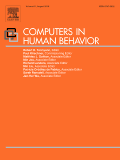
Designing nonverbal communication for pedagogical agents: When less is more
Journal articleVirtual agents/avatars
Baylor, A. L. & Kim, S. (2009) Designing nonverbal communication for pedagogical agents: When less is more. Computers in Human Behavior, 25, 450-457.
Publication year: 2009
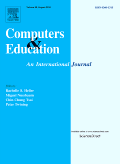
Changing Middle-School Students' Attitudes and Performance Regarding Engineering with Computer-based Social Models
Engineering educationJournal articleVirtual agents/avatars
Plant, E. A., Baylor A. L., Doerr, C., & Rosenberg-Kima, R. (2009). Changing Middle-School Students' Attitudes and Performance Regarding Engineering with Computer-based Social Models. Computers and Education, 53 (2), 209-215.
Publication year: 2009
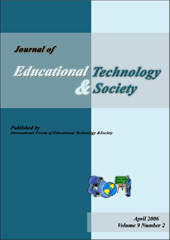
A Virtual Change Agent: Motivating Pre-service Teachers to Integrate Technology in Their Future Classrooms
Journal articleVirtual agents/avatars
Kim, C. & Baylor, A.L. (2008). A Virtual Change Agent: Motivating Pre-service Teachers to Integrate Technology in Their Future Classrooms. Educational Technology & Society , 12(2), 309-321.
Publication year: 2008

Interface Agents as Social Models for Female Students: The Effects of Agent Visual Presence and Appearance on Women's Attitudes and Beliefs
Engineering educationJournal articleVirtual agents/avatars
Rosenberg-Kima, R., Baylor A. L., Plant, E. A., & Doerr, C. (2008). Interface Agents as Social Models for Female Students: The Effects of Agent Visual Presence and Appearance on Women's Attitudes and Beliefs. Computers in Human Behavior , 24(6), 2741-2756.
Publication year: 2008
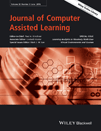
Pedagogical agents as learning companions: The impact of agent affect and gender
Journal articleVirtual agents/avatars
Kim, Y., Baylor, A. L. & Shen, E. (2007). Pedagogical agents as learning companions: The impact of agent affect and gender. Journal of Computer Assisted Learning (JCAL), 23(3), 220-532.
Publication year: 2007

Pedagogical agents as learning companions: The role of agent competency and type of interaction
Journal articleVirtual agents/avatars
Kim, Y. & Baylor, A. L. (2006). Pedagogical agents as learning companions: The role of agent competency and type of interaction. Educational Technology Research & Development , 54(3), 223-243.
Publication year: 2006

A social-cognitive framework for pedagogical agents as learning companions
Journal articleVirtual agents/avatars
Kim, Y., & Baylor, A. L. (2006). A social-cognitive framework for pedagogical agents as learning companions. Educational Technology Research & Development , 54(6), 569-590.
Publication year: 2006
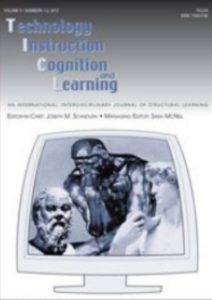
The Psychometric Structure of Pedagogical Agent Persona
Journal articleVirtual agents/avatars
Ryu, J. & Baylor, A. L. (2005). The Psychometric Structure of Pedagogical Agent Persona. Technology, Instruction, Cognition & Learning (TICL), 2(4), 291-315.
Publication year: 2005
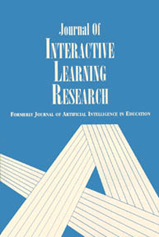
Supporting Problem Solving Performance through the Construction of Knowledge Maps
Journal articleTechnology design / integration
Lee, Y., Baylor, A. L. & Nelson, D. (2005). Supporting Problem Solving Performance through the Construction of Knowledge Maps. Journal of Interactive Learning Research , 16(2), 117-131.
Publication year: 2005

Simulating instructional roles through pedagogical agents
Journal articleVirtual agents/avatars
Baylor, A. L. & Kim, Y. (2005). Simulating instructional roles through pedagogical agents. International Journal of Artificial Intelligence in Education , 15(1), 95-115.
Publication year: 2005

Designer Support for Online Collaboration and Knowledge Construction
Journal articleTechnology design / integration
Gao, H., Baylor, A. L., & Shen, E. (2005). Designer Support for Online Collaboration and Knowledge Construction. Educational Technology & Society , 8(1), 69-79.
Publication year: 2005
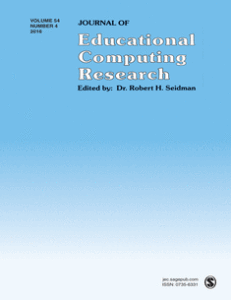
The effects of image and animation in enhancing pedagogical agent persona
Journal articleVirtual agents/avatars
Baylor, A. L. & Ryu, J. (2003). The effects of image and animation in enhancing pedagogical agent persona. Journal of Educational Computing Research , 28(4), 373-395.
Publication year: 2003

Agent-based learning environments for investigating teaching and learning
Journal articleVirtual agents/avatars
Baylor, A. L. (2002). Agent-based learning environments for investigating teaching and learning. Journal of Educational Computing Research , 26(3), 249-270.
Publication year: 2002

What factors facilitate teacher skill, teacher morale, and perceived student learning in technology-using classrooms?
Journal articleTechnology design / integration
Baylor, A. L. & Ritchie, D.R. (2002). What factors facilitate teacher skill, teacher morale, and perceived student learning in technology-using classrooms? Computers and Education , 39(4), 395-414.
Publication year: 2002

Permutations of control: Cognitive considerations for agent-based learning environments
Journal articleTechnology design / integrationVirtual agents/avatars
Baylor, A. L. (2001). Permutations of control: Cognitive considerations for agent-based learning environments. Journal of Interactive Learning Research , 12(4), 403-425.
Publication year: 2001
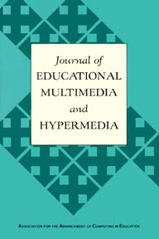
Incidental learning and perceived disorientation in a web-based environment: Internal and external factors
Journal articleTechnology design / integration
Baylor, A. L. (2001). Incidental learning and perceived disorientation in a web-based environment: Internal and external factors. Journal of Educational Multimedia and Hypermedia , 10(3), 227-251.
Publication year: 2001

The impact of the instructional planning self-reflective tool (IPSRT) on pre-service teachers' performance, disposition, and self-efficacy beliefs regarding systematic instructional planning
Journal articleSelf-regulation
Kitsantas, A. & Baylor, A. L. (2001). The impact of the instructional planning self-reflective tool (IPSRT) on pre-service teachers' performance, disposition, and self-efficacy beliefs regarding systematic instructional planning. Educational Technology Research & Development , 49(4), 101 110.
Publication year: 2001
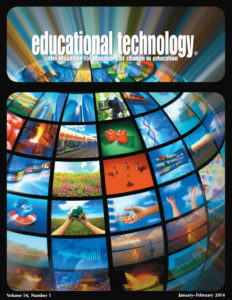
The Constructivist Planning Self-Reflective Tool: Facilitating a Constructivist Instructional Planning Approach
Journal articleSelf-regulation
Kitsantas, A. & Baylor, A. L. & Hu, H. (2001). The Constructivist Planni ng Self-Reflective Tool: Facilitating a Constructivist Instruct ional Planning Approach. Educational Technology, 41 (6), 39-43 .
Publication year: 2001

Beyond butlers: Intelligent agents as mentors
Journal articleTechnology design / integrationVirtual agents/avatars
Baylor, A. L. (2000). Beyond butlers: Intelligent agents as mentors. Journal of Educational Computing Research , 22(4), 373-382.
Publication year: 2000

